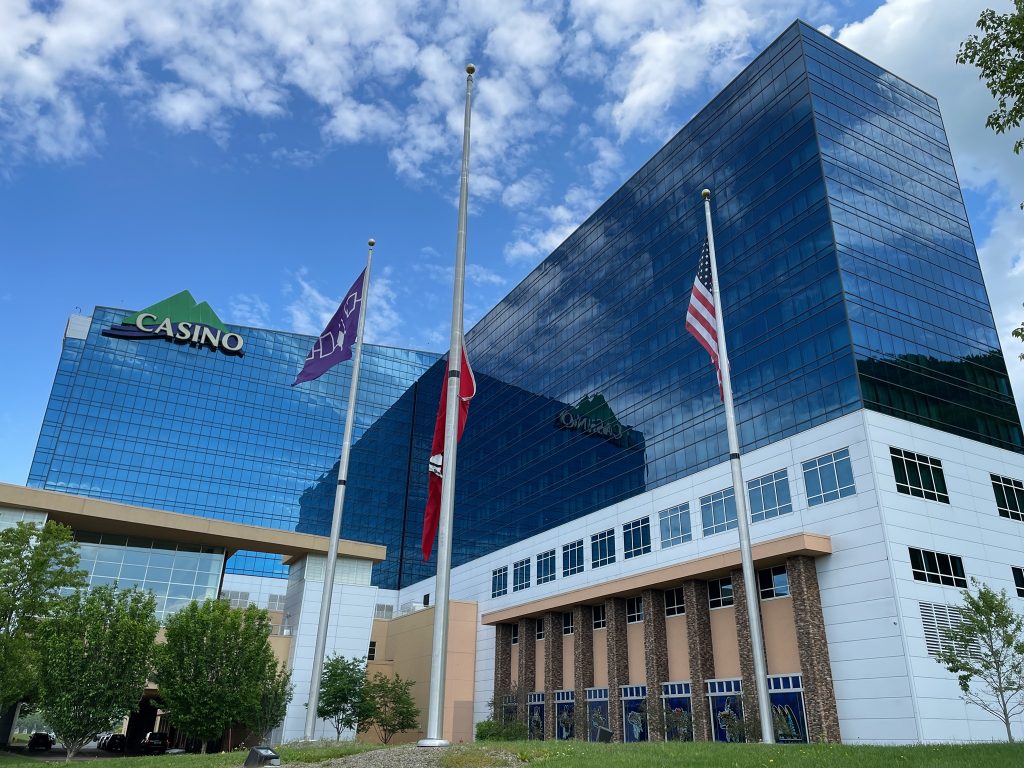Seneca Casino Payment to New York May Violate Indian Gaming Regulations, Says Commission
Posted on: September 24, 2021, 10:31h.
Last updated on: September 26, 2021, 01:06h.
The US agency that regulates tribal gaming is now determining whether a $470 million judgment levied against the Seneca Nation and owed to the state of New York would violate the Indian Gaming Regulatory Act (IGRA).

The National Indian Gaming Commission’s (NIGC) involvement is the latest twist in a lengthy legal battle between the Senecas and New York regarding their Class III gaming compact. In February, a federal appeals court upheld a ruling against the tribal nation. That ruling determined that it was still responsible for paying the state 25 percent of the revenues from its three casinos.
Back in 2002, the Senecas and New York signed a compact with a 14-year base and an automatic seven-year extension. However, only the base agreement called for revenue-sharing payments to the state, with those graduating to 25 percent. Tribal leaders argued the extension did not cover any payments. But the state disagreed.
After losing in arbitration, Seneca leaders filed suit in US District Court in New York’s Western District in June 2019. Tribal leaders argued that the arbitration panel did not follow IGRA in making its decision.
NIGC: New York Must Offer “Meaningful” Return
However, since the appellate court decision, the US Department of the Interior notified tribal leaders that it did not conduct an economic assessment of the seven-year extension – a step required under IGRA. That led the nation to ask US District Judge William M. Skretny back in April to set aside his initial decision.
On Sept. 16, lawyers representing the Senecas notified the judge that their clients received a letter that same day from NIGC Chief Compliance Officer Thomas Cunningham. That letter informed the tribal nation that Bryan Newland, the assistant secretary for Indian Affairs, referred the Seneca lawsuit to the commission for its review.
Cunningham told Seneca President Matthew Pagels in the letter that the commission has concerns about the amount of money given to New York, especially since the state was offering nothing in return.
“If a state wants to receive a portion of a tribe’s gaming revenues, then, it must offer the tribe something meaningful in exchange,” Cunningham said in the letter. “A revenue share payment to a state that does not meet this standard is not consistent with IGRA.”
On Monday, the Seneca Nation asked for a stay on ordering the payment until the NIGC makes its determination.
New York Calls for Seneca Payment
Lawyers for the state expressed skepticism to the referral in its response filed Wednesday. They claimed the tribe was seeking to “manufacture a purported financial hardship” to keep from paying New York.
Gregory Starner with White & Case LLP said arbitrators and the courts have ruled in the matter, and that the Seneca Nation chose not to take the matter to the Supreme Court.
The NIGC Letter also fails to present such extraordinary circumstances or extreme hardship as to warrant vacating this Court’s final judgment,” Starner wrote. “The NIGC does not purport to levy any sort of fine or penalty on the Nation, and the prospect of a permanent or even temporary closure of the Nation’s gaming facilities remains entirely speculative and hypothetical.”
Starner added it was “past time for the Nation to honor its obligations under the DOI-approved Compact and the Judgment.”
On Friday, lawyers for the Seneca Nation provided a copy of the Newland letter to the court.
In the letter to NIGC Chairman E. Sequoyah Simermeyer, Newland said Seneca officials advised the Interior Department of the appellate court ruling in March. That led to the revelation about the economic assessment.
“All references in the secretary’s 2002 letter refer to the compact as 14 years and noted that the compact was considered approved, ‘but only to the extent the compact is consistent with the provisions of (IGRA),’” Newland wrote.
Newland added that Interior officials asked the tribal nation and New York to submit revenue-sharing provisions for review. However, the state did not respond.
Without receiving any benefits in return, Newland told Simermeyer that the Seneca payments may violate IGRA provisions. Those call for the nation to be “the sole proprietary interest” and “primary beneficiary” of its casino operations.
Related News Articles
Most Popular
Genovese Capo Sentenced for Illegal Gambling on Long Island
VEGAS MYTHS RE-BUSTED: The Strip is the Brightest Place on Earth
UPDATE: Former Resorts World & MGM Grand Prez Loses Gaming License
Jackpot News Roundup: Two Major Holiday Wins at California’s Sky River Casino
VEGAS MYTHS RE-BUSTED: The Traveling Welcome to Las Vegas Sign
Most Commented
-
UPDATE: Whiskey Pete’s Casino Near Las Vegas Closes
— December 20, 2024 — 33 Comments -
Zillow: Town Outside Las Vegas Named the Most Popular Retirement City in 2024
— December 26, 2024 — 24 Comments -
Caesars Virginia in Danville Now Accepting Hotel Room Reservations
— November 27, 2024 — 9 Comments -
UPDATE: Former Resorts World & MGM Grand Prez Loses Gaming License
— December 19, 2024 — 8 Comments
















No comments yet